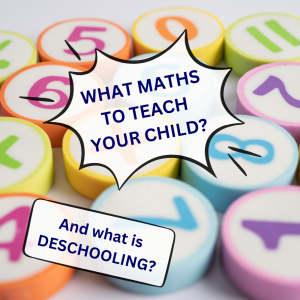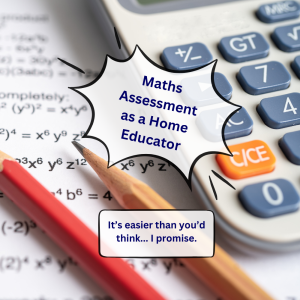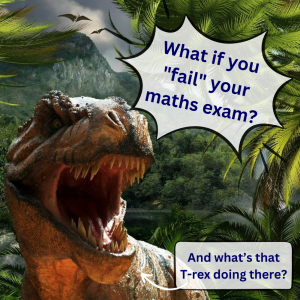Either you are already home educating your child or maybe you're thinking about it, half excited (about all the possibilities you'll have), half worried (about the million billion things that naturally come to your mind with the unknown territory of home education),...
...and you might be wondering how your child can get their exams sorted.
I have mentioned it many times, and I'll say it again (and probably many times more in the future): while your child doesn't have to take any exams if you electively home educate (EHE - not to be confused with EOTAS), it is certainly helpful for future study and work life to have certain qualifications.
At least most of the time. There are always some people who do incredibly well in life despite having little to no formal education, qualifications, etc.
But for now, let's get back to the usual scenario: you want your child to "get those GCSEs", tick it off your list and carry on with further education or your own plans and goals.
Let me tell you where and how you can get your child to sit their exams if you home educate (or if you're an adult learner). Basically, if you don't have a school to sort it out for you.
If you live in Scotland, you're in for a treat, because you will only be dealing with SQA for all your maths exams - from Nat 4 and Nat 5, through Scottish Highers to Advanced Highers.
You can also go for exams from the English system if you fancy the joys of choosing from a nearly endless list of exam boards...
If you live in England, which is statistically 10x more likely, you'll have plenty to choose from. Which is great but it might be overwhelming.
Let me give you some insight into what exams and exam boards there are for home educators to choose from. Otherwise, if you study at school, the school chooses what exam board they want their students to sit and that's the end of the story.
 I know teaching your child maths may sound like a big task, especially when it comes to secondary maths. Algebra, that part of maths with a lot of letters, seems to be for many people more scary than dentists or clowns.
I know teaching your child maths may sound like a big task, especially when it comes to secondary maths. Algebra, that part of maths with a lot of letters, seems to be for many people more scary than dentists or clowns.
I obviously love algebra, but you can guess what (who) I'm not keen to be around (hint: it is indeed either dentists or clowns).
With the right resources, textbooks, video tutorials, apps,... a lot of the maths topics can be easy to teach as a home educator even if you don't have any (particular) educational background.
Let me give you some points to think about when organising your maths learning.
 Children in schools go through plenty of reports (I'd say too many) all the time to quantify and summarise their knowledge. It's good to know what our strengths and weaknesses are, so if not overdone, an assessment is a useful thing.
Children in schools go through plenty of reports (I'd say too many) all the time to quantify and summarise their knowledge. It's good to know what our strengths and weaknesses are, so if not overdone, an assessment is a useful thing.
But how do you get one when you home educate your child? Let me give you some ideas on how you can find you what your child's maths level is right now.
 Hi, it's Veronika, in the midst of this year's disastrous grade boundaries across many exam boards, subjects and even exams (from GCSE, through iGCSE, to A level and more) I was contemplating my student's results this year. And about my student's results from all the years before. It was promoted also by a lot of discussions amongst my colleague tutors who were talking about this year's boundaries being especially harsh ever since the first results were revealed.
Hi, it's Veronika, in the midst of this year's disastrous grade boundaries across many exam boards, subjects and even exams (from GCSE, through iGCSE, to A level and more) I was contemplating my student's results this year. And about my student's results from all the years before. It was promoted also by a lot of discussions amongst my colleague tutors who were talking about this year's boundaries being especially harsh ever since the first results were revealed.
So how did my students do, do you wonder? Do I guarantee and gloat about a 100% pass rate? If you know a little bit about me, you already know the answer. But let's talk about it a bit more in-depth.
[And let's talk about the dinosaur in the room - see at the end of this article.]
© 2024 YourMathsTutor



